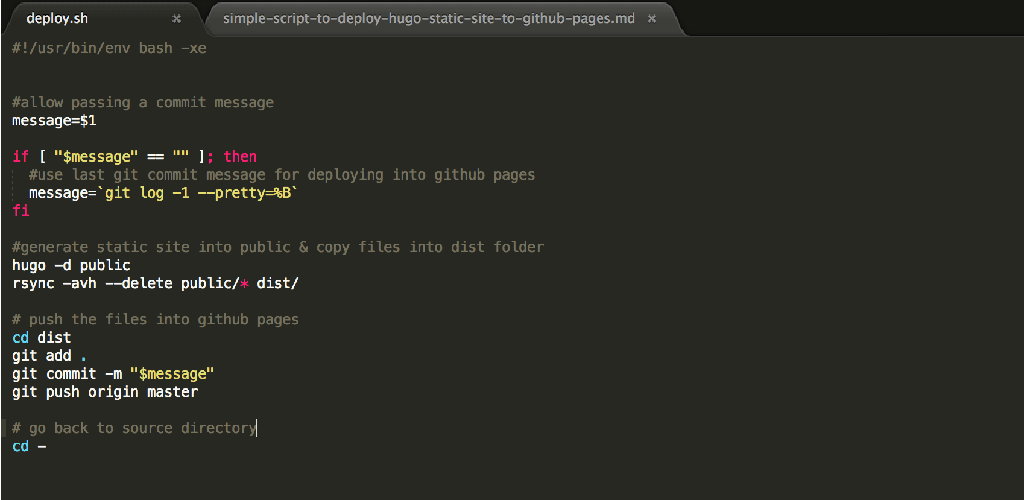Hugo is an awesome Static Site generator written in Go and this blog is powered by Hugo. If you are familiar with Jekyll or Octopress, Hugo is a similar tool in Golang but much faster and better. Well, that’s something people like to debate but let’s come to the point. I was evaluating hugo for the first time and I really liked it. I configured my project and I was ready to deploy it to Github Pages. However, the instructions at https://gohugo.io/tutorials/github-pages-blog/ were too much of a pain for me and didn’t work at all. So, I developed a small script which is quite simple and works flawlessly although it uses rsync. If you don’t have rsync, make sure you have it installed.
Step #1 - Setup Source Project
Setup your source project with
hugo new site /path/to/project
and generate your static site with
cd /path/to/project
hugo -d public
If you don’t use public as output for generating the static, you have to make changes in the deploy script.
Step #2 - Setup Distribution Folder
It would have been great if we can just push the content from public folder to github but hugo cleans the whole directory including .git files. So, we are going to copy the contents of public folder into a folder called dist
mkdir dist
git remote add [git repo url ] # e.g. git@github.com:devhacks/devhacks.github.io.git
#git checkout master # since this is an organizational site, we deploy the site to master. If it's a project site, checkout gh-pages instead
Step #3 - Download Deploy Script
You can download the deploy script with
wget https://gist.githubusercontent.com/ningsuhen/b544f17d31160890d774/raw/deploy.sh
or create a new file deploy.sh with the following content.
Step #4 - Deploy
Now, you can deploy your static site easily after every change by running
./deploy.sh
The script will generate the latest static files and push it to github pages. In short, no more multiple git commands to execute everytime.
Bonus - Integrate with git pre-push
You can even call the deploy script from git pre-push hook on the source branch. With this, you don’t have to run the deploy script everytime. All you have to do is commit and push the source project.
File .git/hooks/pre-push
#!/bin/sh
./deploy.sh
